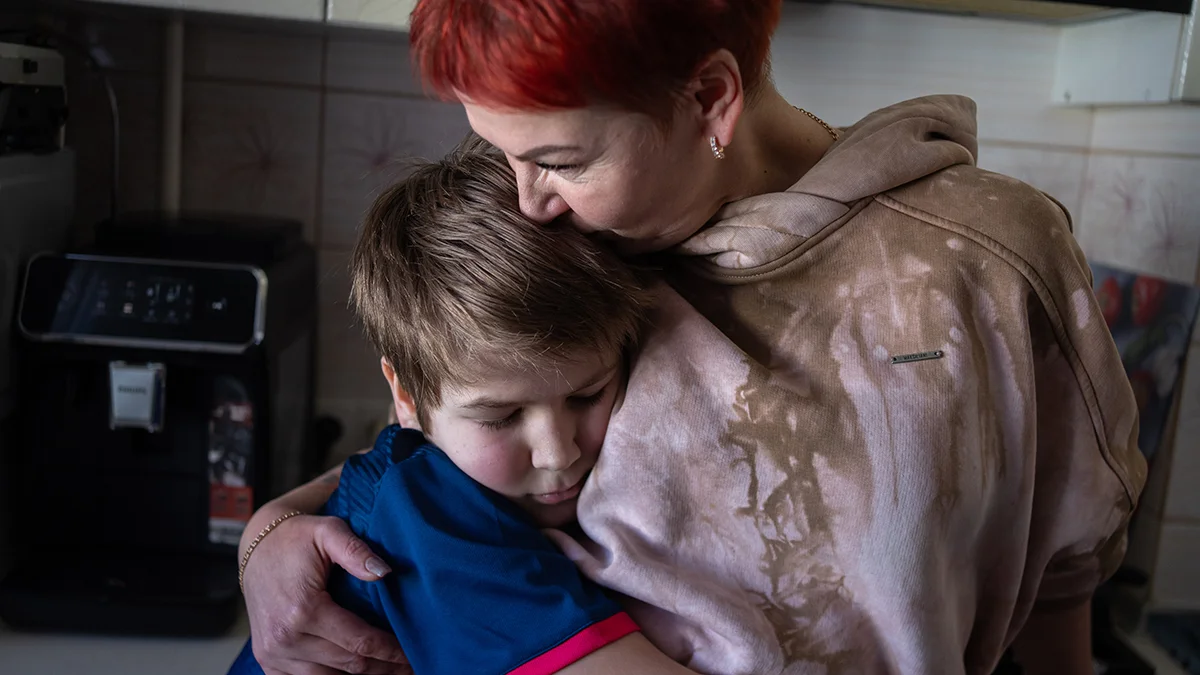One in five children in Ukraine has reported losing a close relative or friend since the escalation of war three years ago, according to survey data released today by UNICEF.
“For far too long, death and destruction have remained a constant in the lives of children in Ukraine,” said UNICEF Executive Director Catherine Russell. “This level of violence causes immense fear and suffering and disrupts every aspect of a child’s life.”
Ukraine’s third year of full-scale war was even deadlier for children than the preceding year. The number of child casualties in 2024 rose by more than 50 per cent compared to 2023. More than 2,520 children have been killed or injured since February 2022. The true number is likely far higher, as these figures account only for child casualties verified by the UN. More than 1,600 education facilities and nearly 790 health facilities have been verified as damaged or destroyed over the past three years.
The war has left children and teenagers facing profound loss and deprivation, affecting their development and well-being, at critical stages in their lives.
Experiences during the first three years of life influence children’s lifelong health and learning. Yet three-year-olds in Ukraine have only known war. Parents report feeling physically and emotionally exhausted, impacting family life. The essential services that young children and their parents rely on have also been disrupted by the war.
Adolescence is also a particularly challenging time for children in Ukraine. Almost one-third of teenagers reported feeling so sad or hopeless that they stopped doing their usual activities. These sentiments are more common among girls.
Mental health challenges for children and young people in Ukraine are worsening due to isolation. Many children consistently spend hours sheltering in basements, missing opportunities to socialize and learn. Nearly 40 per cent of children study only online or through a mixture of in-person and remote classes. The impact on learning has been profound with an average educational loss of two years in reading and one year in math.
UNICEF works with partners across Ukraine to provide critical lifesaving support including access to health care, safe water, cash assistance, education and child protection services to children across frontline areas. Together, we repair and rehabilitate water and sanitation networks and ensure families with children have access to fuel and clothing to keep them warm during the harsh winters.
At the same time, UNICEF works with the Government and partners to support recovery and long-term development, and foster social cohesion, through strengthening systems that serve children and their families. This includes ensuring that child and social protection, health and education systems can provide timely and quality essential support, care and opportunities to children.
There are currently 6.86 million Ukrainian refugees registered globally, almost one million of whom are living in Poland. For refugee children, access to school remains a challenge with half of school-age children in refugee-hosting countries not enrolled in national education systems, impacting their opportunity to learn and interact with their peers, as well as to develop essential skills that will be critical to the recovery of Ukraine. UNICEF continues to work with governments, municipalities and local partners to strengthen systems that provide refugee children with quality education, health care and protection services.
“Children must always be protected from the impacts of war in accordance with international humanitarian and human rights law,” said Russell. “More than anything, children in Ukraine need sustained peace, and the chance to realize their full potential.”






